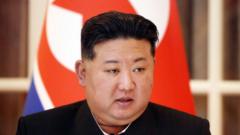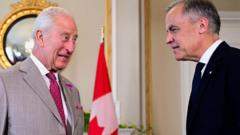In a bid to prevent a trade escalation with the European Union, President Trump has postponed the deadline for tariff negotiations by over a month. Originally set to increase tariffs on EU goods from 10% up to a staggering 50% due to unsatisfactory talks, Trump announced on social media that he would extend the deadline to July 9 following a constructive conversation with European Commission President Ursula von der Leyen. Both leaders acknowledged the call's positive tone, with von der Leyen indicating that further discussions are crucial for a satisfactory outcome. This reprieve comes amidst concerns over potential disruption to global trade and rising costs for consumers.
**Trump Delays EU Tariff Deadline Amid Ongoing Trade Negotiations**

**Trump Delays EU Tariff Deadline Amid Ongoing Trade Negotiations**
US President Trump extends negotiations with EU after tariff threats, fostering hopes for a diplomatic resolution.
With EU imports to the US comprising significant market activity, Trump's initial announcement of a 20% tariff, subsequently adjusted to 10%, sparked worries within the economic landscape. Trump's tariff policies, which he argues serve to protect American manufacturing, have led to heightened apprehensions among economists regarding their impact on prices for American consumers. The current uncertainty reflects broader tensions in transatlantic trade relations, including ongoing discussions about car and agricultural goods, and existing tariffs on steel and aluminum.
In response to the growing tensions, Europe's trade chief Maros Sefcovic expressed an unwavering commitment to achieving a balanced trade agreement, while European leaders including those from France and Germany have emphasized the necessity of a peaceful resolution to mitigate detrimental effects on both economies. The stabilization of tariffs and avoidance of severe economic fallout will depend heavily on the progress made before the new deadline approaches.




















